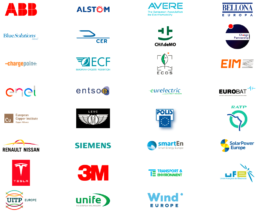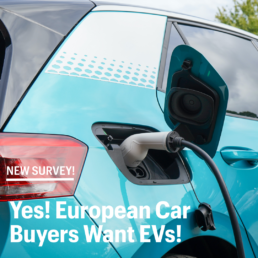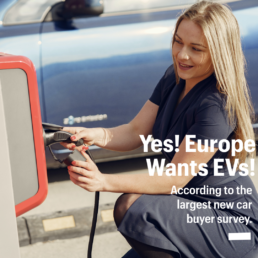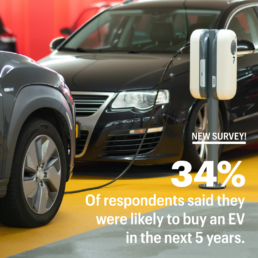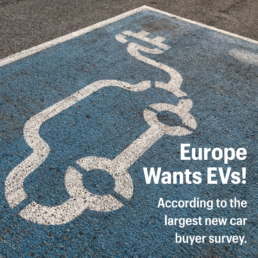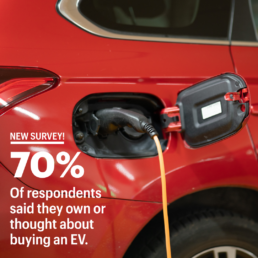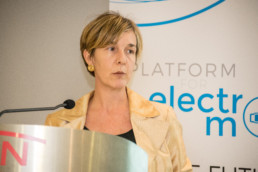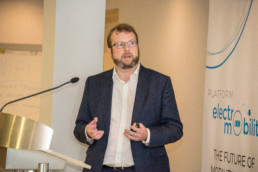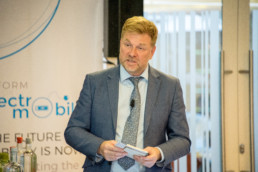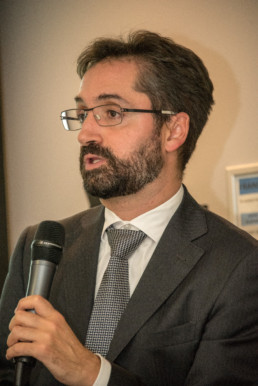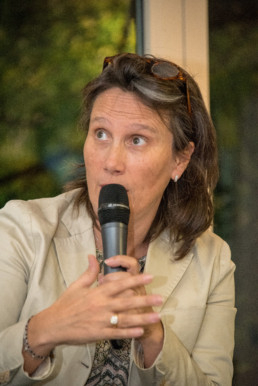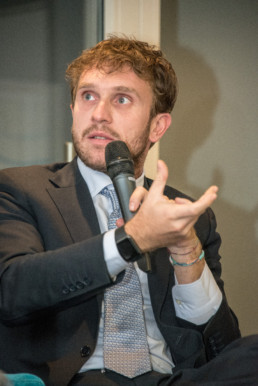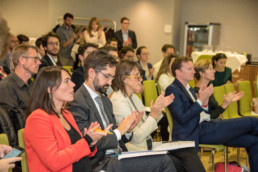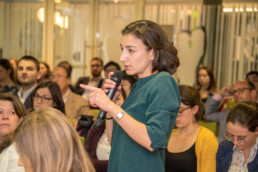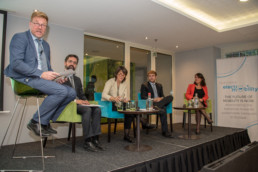Launch event: "Are consumers ready for electric vehicles?"
The Platform for electromobility is pleased to organize the first ever presentation of the study ‘Are consumers ready for electric vehicles?’
The study undertaken by Element Energy and the Platform for electromobility is the largest consumer choice study ever conducted in the mobility sector and aimed to understand consumer preferences in the mobility transitions and how these could change in the future. This event will launch the public presentation of the results.
The European mobility transition will not happen without the Europeans. With the Fit for 55 Package for discussion on the table, it is now more crucial than ever to understand whether the transition to electromobility is inevitable or not?
With a special message from Commissioner Didier Reynders
Date & Time
12th January 2020
13:00 - 14:30
Online
Moderation
Event moderated by Katrina Sichel
Program
Keynote speech
Didier Reynerds, Commissioner
Presentation of study
Celine Cluzel, Element Energy
Panel discussion
Monique Goyens, BEUC
Daniel Mes, Cabinet EVP Timmermans
Amélie Pans, Chair of the Platform for electromobility
Celine Cluzel, Element Energy
Closing Speech
MEP Caroline Nagtegaal
Contact
Théo Fievet
Coordinator
theo@platformelectromobility.eu
+32 4 78 70 05 48
Corporate cars: the n°1 leverage to boost EV uptake
The Platform recommended setting a gradual approach to progressively but eventually reach the objective of 100% of new vehicle purchase in corporate fleets to be fully electrified by 2030. Discover why here.
Discover information and figures supporting the drafting of a mandate on corporate cars electrification.
Agenda and Speakers
| Welcome address | Cedric Thoma, WG Chair, Tesla | |
| Setting the scene | Michelangelo Aveta, Eurelectric | |
| Presentation of the recommendations form the Platform | Saul Lopez, T&E | |
|
|
Reaction from European institution
Reaction from stakholders |
Dario Dubolino, DG MOVE
Richard Knubben, Leaseurope |
| Q&A from attendees | Cedric Thoma, WG Chair, Tesla |
Know more about corporate fleets
Company cars[1] are the elephant in the room that leads Europe to reach its new −100% target in 2035. Corporate fleets represent an estimated 63%[2] of new registrations in 2021 and drive on average 2.25 times more kilometres than private cars. The decarbonisation of company cars is a key leverage to reach climate target with reduced political risks. While immediate results are clear for the planet, there are also strong second-hand impacts on democratisation and affordability of EVs for everyone, without making the low-income classes bear the cost of the transition.
The Platform for electromobility organises an event to raise awareness among stakeholders and policy makers on the obvious, but nonetheless overlooked, benefit the electrification of company cars can trigger. To make this necessary step forward and grab this low-hanging fruit, the Platform recommends setting a gradual approach to progressively but eventually reach the objective of 100% of new vehicle purchase in corporate fleets to be fully electrified by 2030. The Platform outlined in recent publication why and how to create this mandate.
The event will showcase best practices from major fleet owners and companies that have committed to electrify their fleets. It will also be the opportunity to hear reactions from institutional stakeholders and on they actually intent to enshrine in law and implement the EU Smart and Sustainable Mobility Strategy’s announced “actions to boost the uptake of zero-emission vehicles in corporate and urban fleets”.
[1] Any passenger car that is part of a larger fleet within the commercial market channel. Three categories are commonly taken into account : -Short-term rental / Rent-a-car : all registrations made by rental car companies ; -OEMs / dealers / manufacturers : Demo’s, loan cars, one day registration, 0km, registrations made by manufacturers against themselves ; -True fleets : All except the above categories.
[2] https://www2.deloitte.com/content/dam/Deloitte/cz/Documents/consumer-and-industrial/cz-fleet-management-in-europe.pdf
Fit-for-55: how to make europe lead on electromobility
The Commission is due to present its “Fit for 55 package” — aimed at achieving a 55 percent emissions reduction by 2030 — in June. The event will launch the political debate, present and bring together various priorities on each of the main files related to electro-mobility by industrial stakeholders.
Keynotes speeches
Julia Poliscanova, T&E
Daniel Mes, Member of Cabinet of EVP Frans Timmermans
Q&A – with keynote speakers
Self-challenging Panel discussion between sectorial stakeholders*
Suppliers- Emilia Valbum, 3M
Manufacturers
– Marie-France Van der Valk, Renault
– Jos Dings, Tesla
Infrastructures
– Arne Richters, Allego
Rail
– Nicolas Erb, Alstom
Energy-
Giovanni Coppola, ENEL X
Wrap-ups
Views of the demand side – Sandra Roling, EV100
*Representatives from the five key industries of electromobility will challenge each-other in an innovative webinar format based on questions sent ahead of the event by attendees.
Electromobility: a green boost for European automotive jobs?
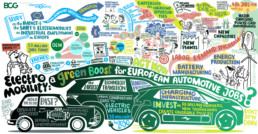
First-ever beforehand presentation of Study on the impact of the shift to electromobility on automotive employment in Europe
The automotive sector is a major employer facing the largest technological transition it has ever known. The automotive industry and its direct supplier represent today more than 6 million European jobs and over 18 million cars. By 2030, at least 30 millions of them will be operating without traditional fuels on European roads. This ambition by the European Union will lead to an unprecedented shift for the automotive industry which has to transform their production from combustions cars to electric vehicles, as well as a high impact on charging infrastructure needs. When Europe will turn to electromobility, what is the impact on the affected jobs within these sectors?
The Boston Consulting Group (BCG), along with the Platform for electromobility, will be present beforehand the result and findings of their recent study on the impact of the shift towards electromobility for the European jobs in the industry. The study covers affected industries from OEM to Tier’s and infrastructure at a European level. The study shows a major shift within the industry. Countries and regions that will be best prepared to capitalize on emerging opportunities by embracing the shift -invest in the new technologies, create a favorable policy environment, invest in re-skilling workers, etc- will have a much higher chance to do so. Those who hold on to the past will be left with an obsolete industry, decreased demand, and face serious unemployment challenges.
Agenda
Welcome Address – Arne Richters, Chair of the Platform for electromobility
Presentation of the results of the Study and reaction from the European Commission
– Daniel Kuepper & Kristian Kuhlmann, BCG
– Frank Siebern-Thomas, Acting Head of the Unit “Fair, Green, and Digital Transitions” DG EMPL
Panel discussion: Capitalize on emerging opportunities
– Marie-France Van der Valk, Renault
– Julie Beaufils, EuropeOn
– Alex Keynes, T&E
– Representative from Trade Union (TBD)
Closing Remarks – Nicolás Gonzales-Casares, MEP (S&D)
What framework for the development of a competitive and sustainable European EV battery industry?
09:30 – 09:40 Welcome Address
With Ville Niinistö Member of the Committee on Industry, Research and Energy at European Parliament
09:40 – 10:20 Panel discussion (Part 1): Production and Competitiveness – Battery Production
With Jos Dings, Director European Policy and Business Development, Tesla
and Emma Weisner, Public Affairs Manager at Northvolt
and Alex Keynes, Clean Vehicles Manager, Transport & Environment
and Patrick de Metz, Corporate Government and Environmental Affairs Director, SAFT
and Jytte Guteland, member of the Committee on the Environment, Public Health and Food Safety at European Parliament
10:20 – 11:00 Panel discussion (Part 2): Recycling & 2nd life: complementarity in the revision of the Battery Directive
With Jean Denis Curt, Recycling & Circular Economy Unit Manager , Renault-Nissan
and Francesco Gattiglio, Director EU Affairs & Policy, EUROBAT
and Claude Chanson, Corporate General Manager, Recharge
and Rita Tedesco, Climate & Energy Programme Manager, ECOS
and Maria Spyraki, Member of the Committee on Industry, Research and Energy at European Parliament
11:00 -11:10 Closing speech
By Claudia Gamon, Member of the Committee on Industry, Research and Energy at European Parliament
-> With the Event moderator
Philippe Vangeel, Secretary General, AVERE -– The European Association of Electromobility
An ambitious AFID consistent with the Green Deal
An ambitious AFID consistent with the Green Deal
To achieve carbon neutrality in the EU by 2050 and to reach the ambitious objective for the transport sector, which represents almost a quarter of EU CO2 emissions, electromobility appears to be a key means of action. However, the existing regulatory framework regarding the electric fleet now seems outdated and needs revision.
In the Communication on the European Green Deal from 11th December 2019, the Commission aims to “ramp-up the production and deployment of sustainable alternative transport fuels”. In this view, the revision of the Alternative Fuels Infrastructure Directive in 2021 needs to be ambitious to accelerate the deployment of zero- and low-emission infrastructure for road, inland waterway and maritime transport.
The Platform for Electromobility supports the Commission’s ambition and considers that strengthening the deployment of the charging infrastructure for electric vehicles is not only an opportunity for the market but also a necessity to reach climate neutrality by 2050.
The event will look on how the current AFI Directive should be ambitiously revised to stimulate the development of electromobility and will address several key questions:
- How can we ensure the effective deployment of charging infrastructure?
- How should the scope of the current AFID evolve and be extended to foster the diversification of the fleet, incl. infrastructure for HDVs?
- How should we accelerate and incentivise the deployment of low-carbon energy in transport?
PROGRAMME
The online event will run on 7 December 2020 from 14:00 to 16:00
- Welcome Address
By Arne Richter, the Chair of the Platform for Electromobility
- Opening Statement
By Adam Guibourgé-Czetwertyński, Deputy Minister of Climate and Environment, Poland
- Keynote Speech
By Charlotte Nørlund-Matthiessen, Policy Assistant, Cabinet of Transport Commissioner Adina Vălean
- Panel discussion (Part 1): Fostering the deployment of charging infrastructure for light-duty vehicles
With Kai Tullius, Policy Officer at Unit B4 Sustainable & Intelligent Transport, DG Move, European Commission
and Julia Poliscanova, Senior Director Vehicles & Emobility, Transport&Environment
and Koen Noyens, Director of EU Policy at EVBox, for ChargeUp Europe
- Panel discussion (Part 2): Electrification of heavy-duty vehicles: addressing new charging applications
With Nikolaus Steininger, Senior Expert, Road Transport Unit, DG Clima, European Commission
and André Burdet, Vice-President Emobility Infrastructure Solutions, Hitachi ABB Power Grids
and Jos Dings, Director European Policy and Business Development, Tesla
- Closing speech
By Ismail Ertug, Member of European Parliament
With the Event moderator
Jayson Dong, Policy Manager, AVERE
Event - How can zero-emission mobility become the motor of European green recovery?
Event - How can zero-emission mobility become the motor of European green recovery?
How the transport sector can best exit this crisis while staying on track by delivering the much-needed carbon savings to the sector.
The Global COVID-19 outbreak has confronted Europe with an unprecedented crisis by both scale, duration, impact on people lives and seriously impacting economic activity, the transport sector is , one of the most seriously affected industries.
Shortly before the COVID-19 outbreak, the European Commission launched its European Green Deal, a new policy initiative meant to focus minds and underline the need to transform Europe Economy and set it on a sustainable path, with a goal of becoming the first carbon neutral continent by 2050. Just before the lockdown, Europe has also seen record EV sales and huge investments going into electromobility such as charging and batteries. With the large EU recovery package now on the agenda, the key question is how it can be used to continue the pre-COVID momentum and accelerate the transition to zero emissions mobility.
The Platform for Electro-mobility representing >35 industrial, urban and environmental stakeholders from across Europe wholeheartedly embrace this objective. Given the new economic context the platform would like to convene around an event addressing the question, how the transport sector can best exit this crisis and at the same time deliver on the much needed carbon savings for our sector.
Agenda:
10:00 – 10:05 Welcome remarks
Mrs. Laura Shields – Moderator
10:05 – 10:15 Introduction to Platform for Electromobility (including Video)
Mr. Arne Richters – Chair of The Platform for Electromobility
10:15 – 10:25 European Parliament: The role of zero-emission transport in the recovery programme
Special guest: Mr. Pascal Canfin – Chair of Committee on the Environment, Public Health and Food Safety
10:25 – 10:35 European Commission: The role of zero-emission transport in the recovery
Special guest: Mr. Daniel Mes – Member of the Cabinet of Executive Vice-President on the European Green Deal, Frans Timmermans, responsible for the transport portfolio
10:35 – 11:05 Impulse Reactions from Platform members:
- Mr. Thierry Lassus – Senior Vice-President Transport & Infrastructure ABB Power Grids
- Mrs. Julia Poliscanova – Head of Clean vehicles & e-Mobility Transport & Environment
- Mr. Peter Badik – CEO and Founder of Greenway
11:05 – 11:20 Discussion and Q&A
11:20 – 11:30 Conclusions
Event: Leading the e-mobility transition - Time to act
Date and Time: Tue 9 October 2018, 16:45 – 19:00
Location: Thon EU, Rue de la loi 75, 1040 Brussels
Description
Europe is striving to lead the transition to a decarbonized economy and all sectors have an important role to play. CO2 emissions have decreased in all sectors with the exception of transport. An increasingly decarbonized electricity mix can contribute to the decarbonization of the transport sector, as there is no energy carrier that can curb greenhouse gas emissions to the same extent and scale as electricity.
The Clean Mobility Package can provide the regulatory framework to allow for the electrification of the transport sector, thus reducing emissions from this sector while creating new business opportunities. A high level of ambition through CO2 emission standards and ambitious public procurement practices could incentivize the transition to more sustainable vehicles, and give Europe a competitive edge in zero emission technologies internationally.
What are the economic aspects that surround electro-mobility? What technological improvements have been made? What are the new market drivers? What are the opportunities and needs in terms of new infrastructure? What are the new horizons for jobs and growth? What are the business cases and lessons for future development of electro-mobility?
Programme
- 16:45 Registration
- 17:15 Welcome remarks by Seb Dance, MEP
- 17:25 Keynote speech by Anna Lisa Boni, Secretary General, EUROCITIES
- 17.35 Presentation Climate Foundation “Trucking into a Greener Future” by Jon Stenning, Associate Director Cambridge Econometrics
- 17:50 Panel discussion and Q&A
– Giovanni Coppola, Enel X
– Marie-France Van Der Valk, Renault-Nissan
– Dario Dubolino, DG Move
– Dorothée Coucharriere, Blue Solutions
– Moderator: Greg Archer, Transport & Environment
- 18:55 Closing remarks by Seb Dance, MEP
- 19:00 Networking cocktail
